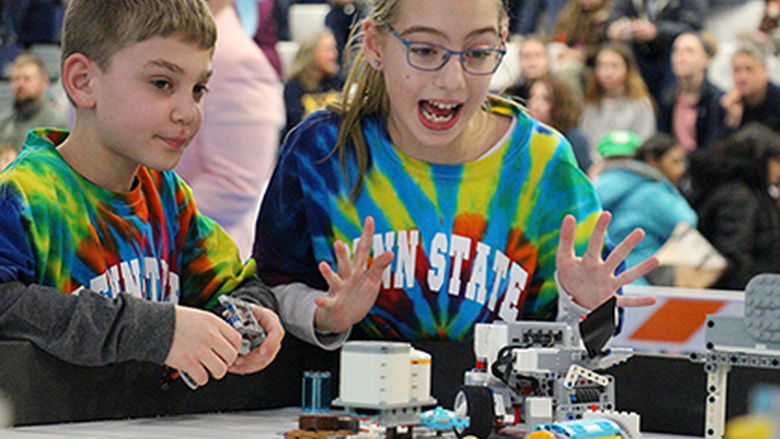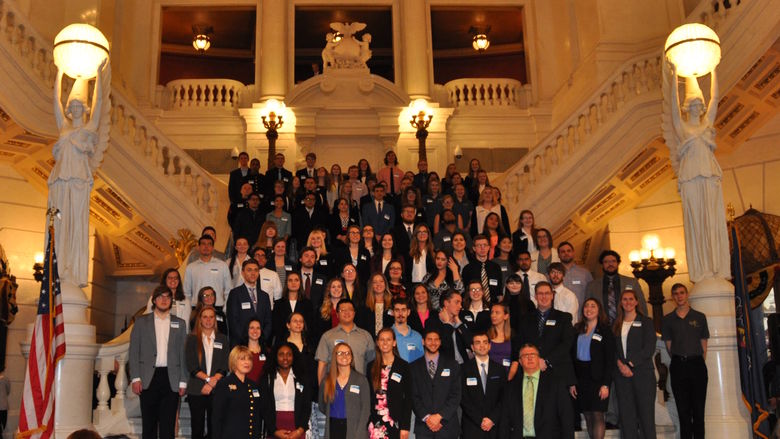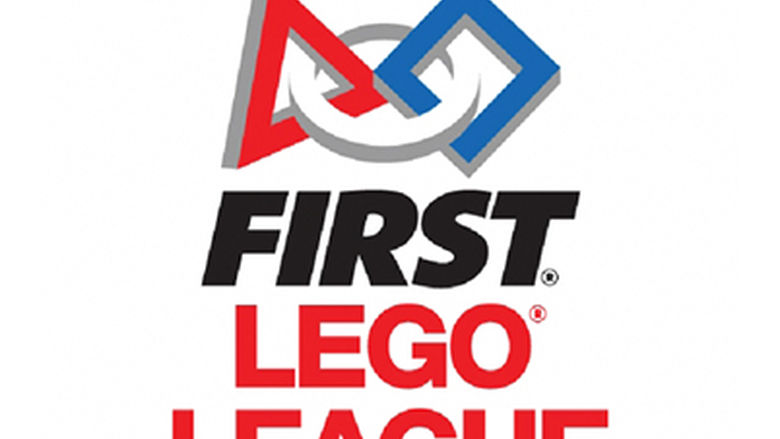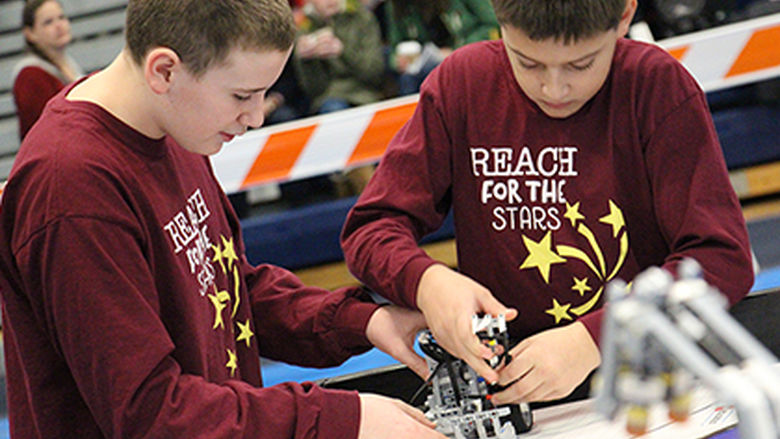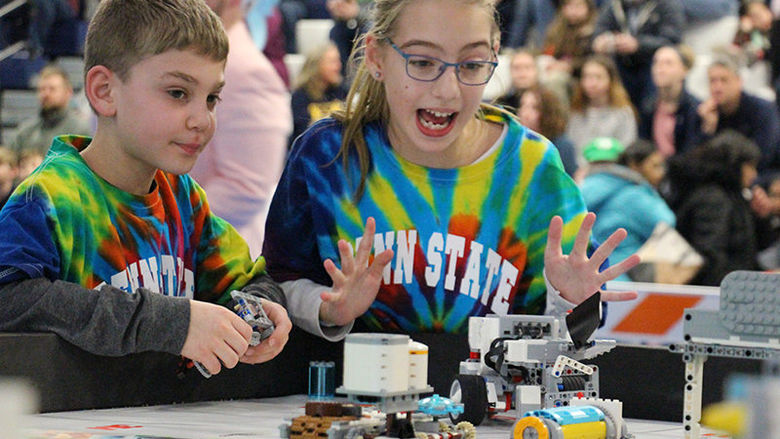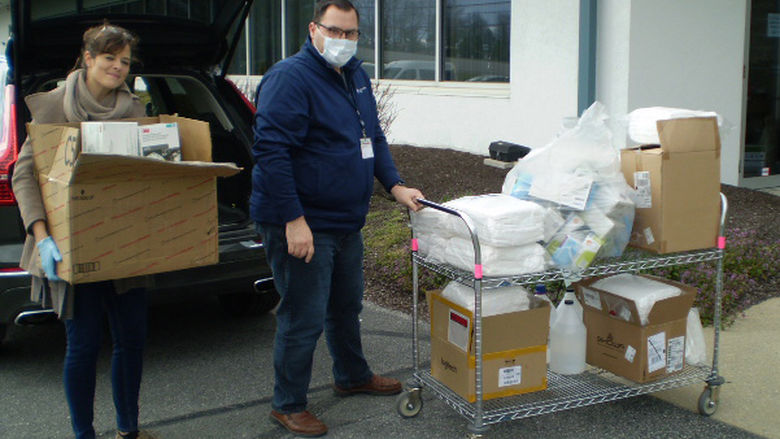
Teams of students, grades 4-8, guided by two or more adult coaches, research a real-world problem and are challenged to develop a solution.
READING, Pa. — The innovators of tomorrow will be practicing imaginative thinking and teamwork during the FIRST LEGO League Challenge, set to run from 7 a.m. to 5:30 p.m. on Saturday, Feb. 3, with a snow date of Saturday, Feb. 10. This is the second consecutive year for the event at Penn State Berks.
In the FIRST (For Inspiration and Recognition of Science and Technology) LEGO League, teams (up to 10 members, grades 4-8), guided by two or more adult coaches, research a real-world problem and are challenged to develop a solution. They also must design, build and program a robot using LEGO MINDSTORMS, then compete on a table-top playing field. Participants develop valuable life skills and discover exciting career possibilities while learning that they can make a positive contribution to society.
Some parts of the challenge are open to the public, including the opening ceremony at 8 a.m., the tournament table practice rounds at 8:45 a.m., the official robot competition rounds from 12:45 to 3:45 p.m., and the closing ceremony at 5 p.m., all held in the Beaver Community Center.
For the first time, local teams from Berks County will compete in the event. Three teams compete: one from the Blandon area, one form High Point Baptist Academy in Geigertown, and one from Northeast Middle School in Reading. A fourth team from Glenside Elementary School in Reading has begun implementing the program but will not officially compete in this year’s Challenge. Each team is limited to 10 members and the event will include 44 teams in total — up 21 from last year’s total of 23 teams. A total of 450 participants and coaches will be involved in the event.
While three of the teams are from local schools, the Blandon area team is comprised of children of faculty, staff and students from Penn State Berks. They are coached by Jill M. Guza Felker, laboratory manager for biochemistry and molecular biology and adjunct instructor in microbiology, biology and chemistry at Penn State Berks. She and her husband, Brian, coach the team in the evening in the college’s Gaige Technology and Business Innovation Building.
Kathleen Hauser, instructor in engineering at Penn State Berks who is heading up the project, explained that the challenge, based on a real-world scientific topic, has three components: the Robot Game, the Project, and the Core Values. Teams of students participate in the challenge by programming an autonomous robot to score points on a themed playing field (Robot Game) and develop a solution to a problem identified by the challenge (Project), all guided by the FIRST LEGO League Core Values.
This season's challenge is "Hydro Dynamics." For the project, each team will find a way to improve the way people find, transport, use or dispose of water; create an innovative solution that that adds value by improving something that already exists, using something that exists in a new way, or inventing something totally new; and share their solution with others.
Nearly 100 Penn State Berks faculty, staff and students, as well as volunteers from the local community, will help to run and judge the tournament and referee the robot competition. In future seasons, the region will have both qualifying tournaments and a final championship tournament.
This year, members of the Berks benefiting THON student group will also serve as volunteers during the event. Bernadette Samanns, executive director of Berks benefiting THON, explains, “Berks benefiting THON got involved with the FIRST LEGO League tournament because we are always looking for ways to help our community and volunteering for this event would be the perfect way to do that. We think it is a great opportunity for youth to express their creativity and showcase their skills, all while having fun and making friends.”
“Penn State Berks has always been interested in supporting the local community and engages in all types of activities that demonstrate that,” said Hauser. “Penn State Berks has the opportunity to give back to our local community while generating excitement about STEAM fields at the same time. We all benefit from these type of partnerships.”
Hauser said that Penn State Berks students will learn the value of sharing their time at an event that engages children in the community in a STEAM activity. “We are engaging our youth in the science, technology, engineering, arts and math fields and having a whole lot of fun doing it,” said Hauser.
For additional information, contact Hauser via email at KMS122@psu.edu or visit http://www.firstinspires.org/robotics/fll.
